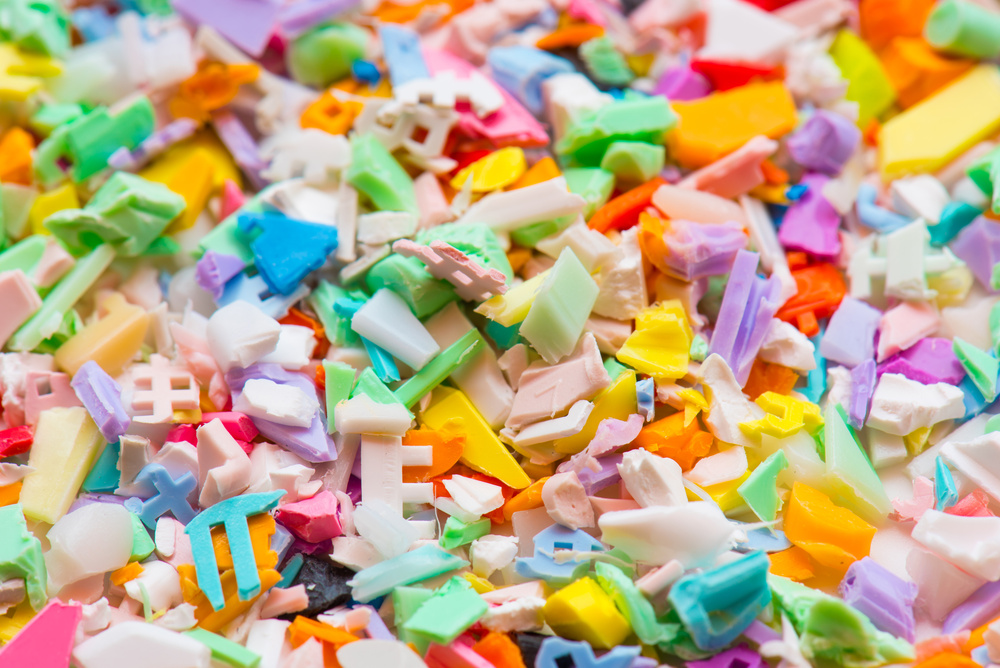How Plastic Recycling Can Help Support High Demand

Recycling industrial plastics isn’t the most glamorous industry in the world. We buy plastic, recycle it, and sell it to manufacturers who make new things. Sometimes it can seem quite mundane. But every once in a while, we are reminded just how important recycling plastic waste is.
At the height of the COVID pandemic, certain manufacturers couldn’t get enough of the material we sell – plastic regrind. They needed as much regrind as they could get to support a sudden surge in demand. What caused the surge? Higher demand for plastic materials to help fight the spread of the virus.
We were reminded that recycling can help support on-demand plastic fabrication. Not only that, but such support is also often crucial to what manufacturers do. In manufacturing, there are ebbs and flows. Sometimes demand is such that manufacturers need access to more materials than normal. If they can buy regrind from us, that helps.
COVID’s Most Demanded Plastics
Manufacturing needs related to fighting COVID absolutely put demand on recyclers who could produce an adequate supply of regrind. Manufacturers also needed a lot more virgin plastic as well. Between the two, manufacturers demanded more:
- PET – Polyethylene terephthalate (PET) is one of the most recycled plastics in the world. We recycle it ourselves by way of baled water bottles. Manufacturers needed a ton of it during the pandemic to create a variety of guards, covers, and medical device packaging.
- Acrylic – Although acrylic isn’t as readily recycled, it is a high-demand plastic that’s appreciated due to its chemical resistance and overall strength. All those clear, plastic barriers you saw installed at retail counters were made from acrylic.
- Polycarbonate – Polycarbonate is another easily recycled plastic that has tons of uses covering everything from food packaging to agriculture. Medical tool and device manufacturers needed quite a bit more of it during the COVID pandemic.
The interesting thing about plastics manufacturing during COVID is that the on-demand model was almost forced upon us. In fairness, manufacturers had begun switching to on-demand production for a couple of years, thanks to advanced logistics that reduce the need to keep so much stock stored in warehouses. But when the pandemic hit, the on-demand model went into overdrive.
Stocking Isn’t Such a Bad Idea
Among the many lessons we learned from COVID was the fact that stocking excess inventory isn’t such a bad idea. Perhaps we don’t need to stock as much as we did 10 and 20 years ago, but on-demand production doesn’t work well in emergency scenarios. We learned that all too well during the pandemic.
All of that notwithstanding, our industry came through to keep the supply of virgin and recycled plastic flowing. We did such a good job that manufacturers who had never touched medical and healthcare supplies before retooled their manufacturing lines to help make personal protective equipment, medical devices, protective barriers, and so much more.
If your company recycled its industrial plastics during that time, know that you helped keep the supply of plastic steady. If not, it is never too late to get involved. Seraphim Plastics recycles a wide variety of materials in seven states, including Tennessee and Michigan. Other companies throughout the U.S. do likewise.
If you would like to recycle your industrial plastic scrap, give us a call or fill out our online form. We will let you know if we can use what you have to offer. If we can, striking a deal will allow us to both win. We’ll get your plastic and you’ll have the opportunity to both earn a little extra cash and help support on-demand plastic fabrication.